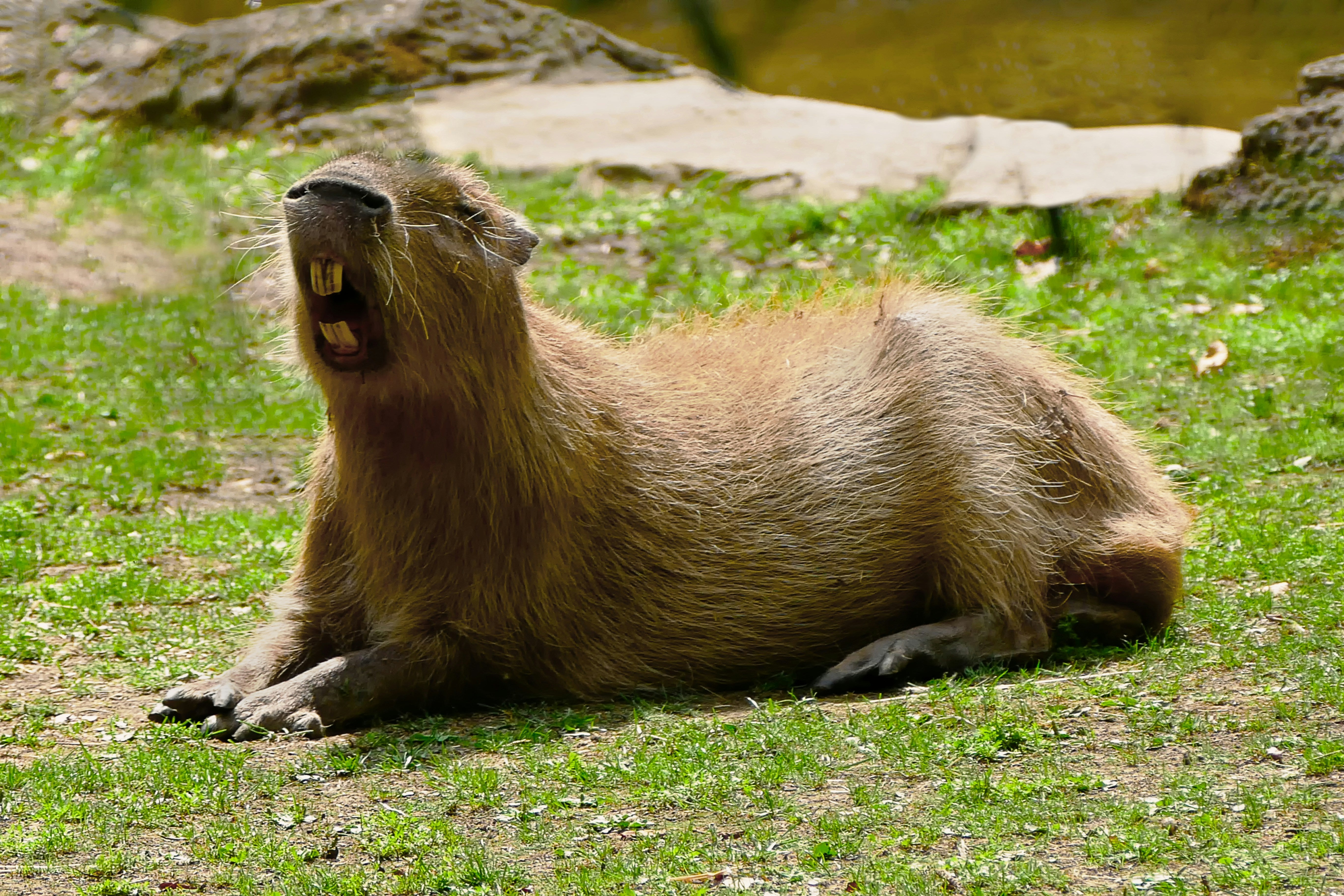Capybaras, the world’s largest rodents, have gained popularity in recent years as exotic pets. Known for their friendly and social nature, these gentle giants can be incredibly charming companions. However, before diving into the world of capybara ownership, it’s essential to understand their unique needs and the responsibilities that come with caring for them.
Understanding Capybaras
Native to South America, capybaras are semi-aquatic mammals often found near rivers, lakes, and wetlands. They typically weigh between 77 to 150 pounds and can grow up to four feet in length. Capybaras are highly social animals and thrive in groups, often forming strong bonds with one another. Their friendly disposition makes them appealing pets, but their needs are significantly different from those of traditional domesticated animals.
Legal Considerations
Before considering a capybara as a pet, check your local laws and regulations. In many areas, owning a capybara may be illegal or require special permits. Regulations can vary widely depending on your state or country, so it’s crucial to do thorough research before bringing one into your home.
Space and Habitat Requirements
Capybaras need ample space to roam and graze. Ideally, they should have access to a large outdoor area where they can exercise and socialize. An enclosure should include:
-
A secure fence: Capybaras are excellent diggers and can escape easily if the fencing isn’t adequate.
-
Water access: As semi-aquatic animals, capybaras love to swim. A pond or a large water feature is essential for their well-being.
-
Shelter: Provide a shaded area where they can retreat from the sun, as well as a sheltered spot to protect them from harsh weather conditions.
Diet and Nutrition
Capybaras are herbivores and primarily eat grasses, hay, and fresh vegetables. A balanced diet includes:
-
Grass hay: This should make up the majority of their diet. Timothy hay and orchard grass are good options.
-
Fresh vegetables: Leafy greens, carrots, and bell peppers can be offered in moderation as treats.
-
Specialized pellets: Some owners choose to supplement their capybara's diet with specially formulated rodent pellets.
Fresh water should always be available, especially if they have a swimming area, as capybaras can drink a lot.
Socialization and Companionship
As highly social animals, capybaras should not be kept alone. They are happiest in pairs or small groups, ideally with other capybaras. If you are considering adopting a capybara, it’s best to get at least two so they can engage in natural behaviors and provide each other with companionship.
Health Considerations
Capybaras can live up to 8-12 years in captivity with proper care. Regular veterinary check-ups are essential to monitor their health, as they are susceptible to certain diseases and conditions, such as:
-
Dental issues: Their teeth continue to grow throughout their lives, requiring appropriate chewing materials to prevent overgrowth.
-
Skin problems: Capybaras can be prone to skin infections, particularly if they do not have access to clean water.
-
Weight management: Obesity can be a concern, so monitor their diet and ensure they get plenty of exercise.
Enrichment and Play
Keeping a capybara mentally stimulated is just as important as meeting their physical needs. Provide various enrichment activities, such as:
-
Toys: Large balls or sturdy chew toys can keep them entertained.
-
Natural elements: Logs, rocks, and other natural materials in their habitat can encourage exploration and play.
-
Interaction: Spend time with your capybara, engaging in activities like training or simply lounging together.
Conclusion
Capybaras can make wonderful pets for the right person or family, but they require a significant commitment in terms of space, socialization, and care. If you’re considering adding a capybara to your household, ensure you can meet their needs and are prepared for the responsibilities of caring for a large, social, and somewhat exotic pet. With the right environment and care, capybaras can be delightful companions that bring joy and a unique charm to your life. Always remember to research thoroughly and consult with professionals to ensure a healthy and happy life for your future capybara friend.
Yours, Tutuky.



Share:
Best Dog Breeds for Busy People: Finding the Perfect Canine Companion
Spooktacular Halloween Deals for Your Furry Friends!